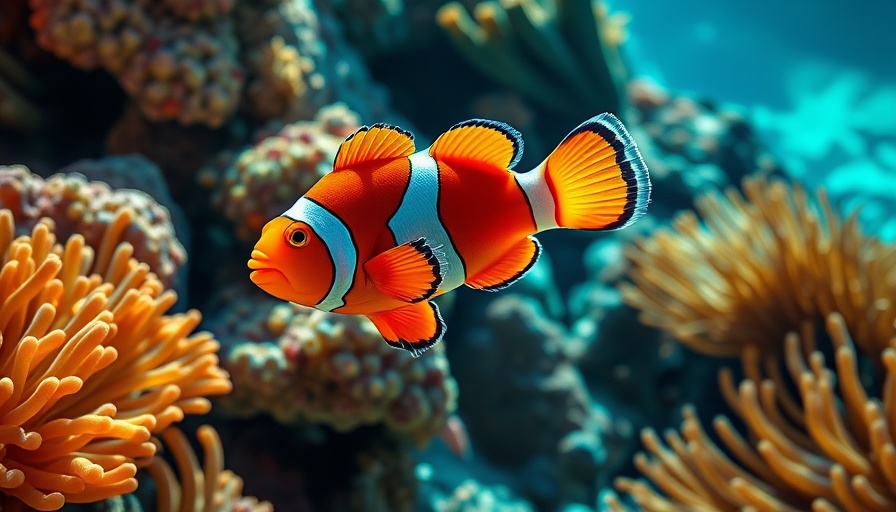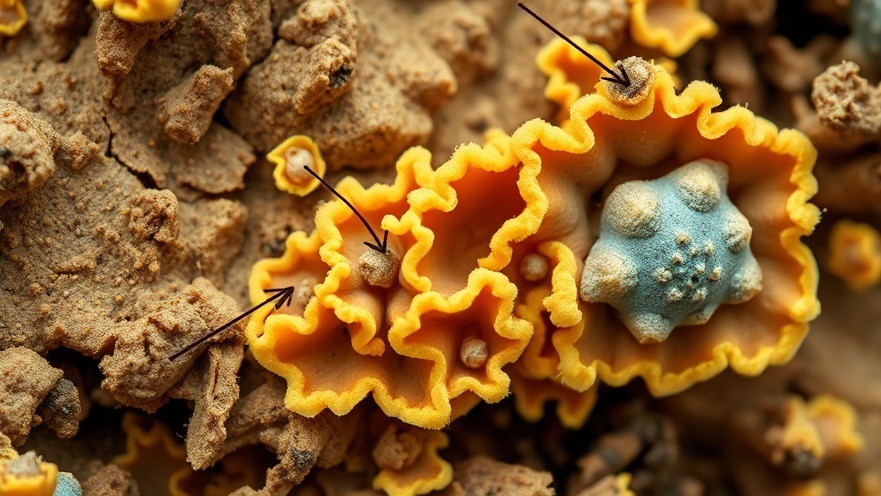
Understanding Clownfish Adaptations: A Remarkable Survival Strategy
As climate change continues to intensify, the survival tactics of various marine species come into sharper focus. Recent research conducted by Newcastle University and its collaborators has revealed a surprising behavior in clownfish: they can physically shrink to cope with heat stress. This crucial adaptation not only aids in their survival but also presents a fascinating perspective on how species adjust to shifting environmental conditions.
How Climate Change Affects Marine Life
The study, which took place in Kimbe Bay, Papua New Guinea, monitored clownfish during a marine heatwave. The researchers found that 100 out of 134 clownfish shrank in size, with this ability increasing their chances of surviving extreme heat by up to 78%. This insight is valuable not just for understanding clownfish but highlights the broader implications of climate change on various marine ecosystems.
Social Dynamics in Shrinking Clownfish
A particularly heartening aspect of the research found that clownfish pairs performed better when both partners shrank together. This suggests a significant social component to their survival strategy, revealing that teamwork among breeding pairs may enhance their chances in stressful situations. Melissa Versteeg, a lead researcher on the project, emphasized the novel nature of these findings, noting, "The extent to which they shrink, both individually and as pairs, showcases a flexible response to environmental and social pressure.”
Looking Forward: The Impacts of Shrinking on Fish Populations
Amidst rapid environmental changes, the ability for fish like clownfish to shrink might also explain the global trends of declining fish sizes. Dr. Theresa Rueger, the study's senior author, pointed out that this phenomenon could provide insights into why many fish species are experiencing size reductions. In a world where overfishing and habitat loss are increasingly prevalent, understanding these dynamics becomes crucial for conservation efforts.
Implications Beyond Clownfish: The Bigger Picture
The findings derived from the clownfish study highlight a profound relationship between environmental stress and fish survival mechanisms. If shrinking is a common adaptive trait among various fish species, it could expand our understanding of marine biology significantly. Further research will be essential to uncover the extent and implications of this phenomenon.
A Connection to Lifestyle Choices in Urban Areas
This exploration of marine life resilience offers us a compelling parallel to our own urban environments. Much like clownfish adapting to changes in their habitat, individuals in cities such as Dallas often find themselves adjusting to lifestyle pressures. Whether it's managing the cost of living in Dallas versus Houston or evaluating the pros and cons of living in Dallas, adaptability is key. Just as clownfish must collaborate with their partners for survival, those living in Dallas must navigate social interactions impacted by the city’s evolving landscape.
Final Thoughts: The Importance of Adaptation
The resilience demonstrated by clownfish serves as an inspiration for adaptation amid challenges. By studying such natural phenomena, we can cultivate a better understanding of our own adaptability. The journey from ocean depths to urban living exemplifies the relentless pursuit for survival and community, regardless of the medium. Both require an understanding of one’s environment and the ability to thrive under pressure—whether it be marine heatwaves or bustling city life.
 Add Element
Add Element  Add Row
Add Row 



 Add Row
Add Row  Add
Add 


Write A Comment